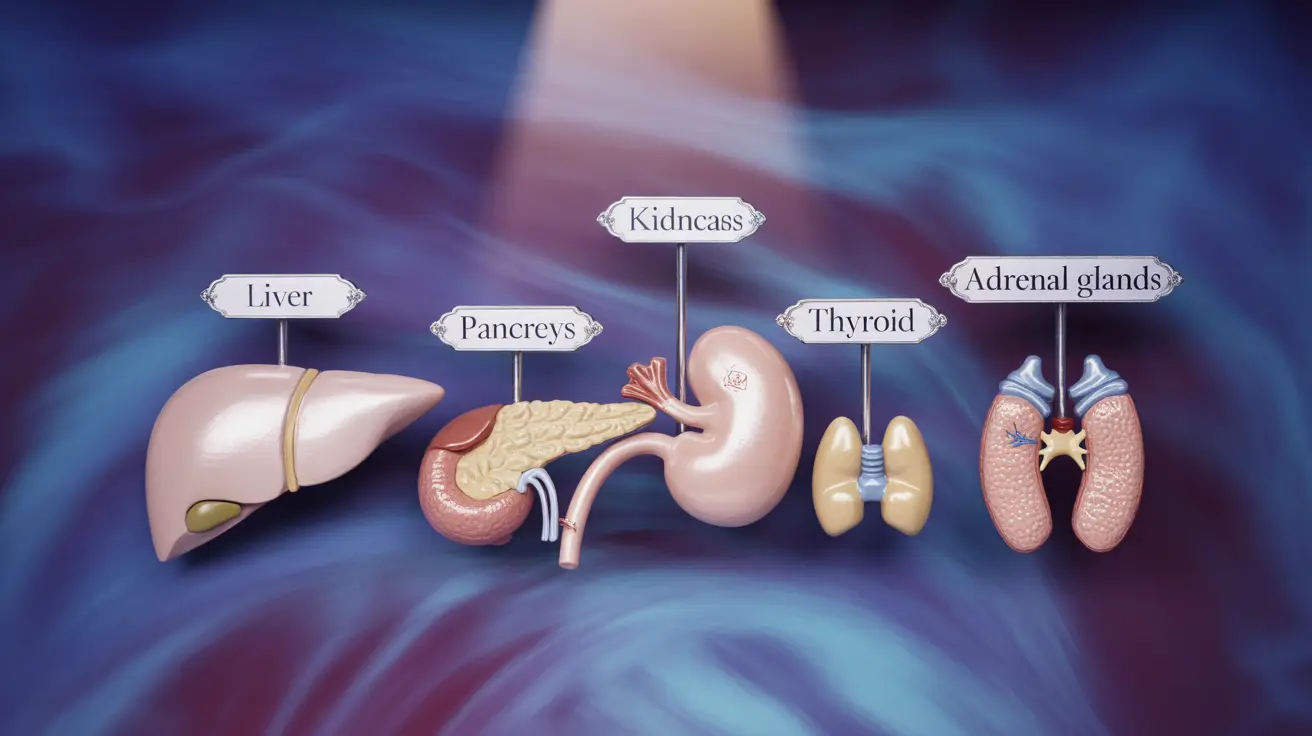Metabolic disorders encompass a range of conditions that affect how your body processes nutrients, maintains energy balance, and handles vital chemical reactions. These disorders can be inherited or develop over time, impacting various aspects of health and daily functioning. Understanding these conditions is crucial for early detection and effective management.
Whether you're concerned about symptoms, seeking diagnosis information, or exploring treatment options, this comprehensive guide will help you better understand metabolic disorders and their impact on health.
Key Signs and Symptoms of Metabolic Disorders
Metabolic disorders can manifest through various symptoms, which may vary depending on the specific condition and its severity. Common warning signs include:
- Unexplained weight changes
- Frequent fatigue or weakness
- Irregular heartbeat
- Muscle pain or weakness
- Digestive issues
- Blood sugar fluctuations
- Poor growth in children
- Developmental delays
Early recognition of these symptoms is crucial for timely intervention and better health outcomes. If you experience multiple symptoms, consulting a healthcare provider is essential for proper evaluation.
Diagnostic Process and Testing
Diagnosing metabolic disorders requires a comprehensive approach combining various medical tests and evaluations. Healthcare providers typically begin with:
Initial Screening
- Physical examination
- Family history review
- Blood tests
- Urine analysis
Advanced Testing
- Genetic testing
- Enzyme activity measurements
- Metabolic panel analysis
- Imaging studies
The specific combination of tests depends on the suspected disorder and presenting symptoms. Early diagnosis is crucial for implementing effective treatment strategies.
Treatment Approaches and Management
Treatment for metabolic disorders varies based on the specific condition and its severity. Common approaches include:
Medical Interventions
- Enzyme replacement therapy
- Medication management
- Dietary supplements
- Hormone therapy
Lifestyle Management
- Specialized diet plans
- Regular exercise programs
- Stress management
- Regular monitoring
Success in managing metabolic disorders often requires a combination of medical treatment and lifestyle modifications, tailored to individual needs and circumstances.
The Role of Organ Function
Various organs play crucial roles in metabolic processes, and their dysfunction can significantly impact metabolic health. Key organs involved include:
- Liver: Central to nutrient processing and toxin removal
- Pancreas: Regulates blood sugar and digestive enzymes
- Kidneys: Filter metabolic waste products
- Thyroid: Controls metabolic rate
- Adrenal glands: Regulate stress hormones
Understanding the interconnection between organ function and metabolism helps in both prevention and management of metabolic disorders.
Frequently Asked Questions
What are the common symptoms of metabolic disorders that I should watch for?
Common symptoms include unexplained weight changes, fatigue, muscle weakness, digestive problems, and irregular heartbeat. In children, poor growth and developmental delays may be significant indicators. Any persistent combination of these symptoms warrants medical attention.
How are metabolic disorders diagnosed and what tests are involved?
Diagnosis typically involves multiple steps, including physical examination, blood tests, urine analysis, and genetic testing. Healthcare providers may also order specialized metabolic panels and enzyme activity tests. The specific testing protocol depends on the suspected condition and presenting symptoms.
What lifestyle changes can help manage or prevent metabolic disorders?
Key lifestyle modifications include maintaining a balanced diet appropriate for your specific condition, regular physical activity as tolerated, stress management, and consistent monitoring of symptoms. Working with healthcare providers to develop a personalized management plan is essential.
What treatment options are available for inherited metabolic disorders?
Treatment options include enzyme replacement therapy, specialized dietary interventions, medication management, and supplementation. The specific treatment plan depends on the type of disorder and its severity. Regular medical monitoring and adjustments to treatment plans are often necessary.
How does organ dysfunction contribute to the development of metabolic disorders?
Organ dysfunction can significantly impact metabolic health as organs like the liver, pancreas, and kidneys play crucial roles in metabolic processes. When these organs don't function properly, it can lead to various metabolic imbalances and disorders. Regular monitoring of organ function is often part of metabolic disorder management.




